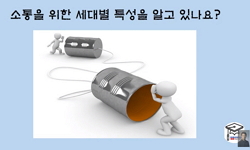While most of the grievances previously raised were related to personnel management, grievances arising from relationships with coworkers and managers have increased recently. In this context, this study verifies the theoretical argument that public o...
http://chineseinput.net/에서 pinyin(병음)방식으로 중국어를 변환할 수 있습니다.
변환된 중국어를 복사하여 사용하시면 됩니다.
- 中文 을 입력하시려면 zhongwen을 입력하시고 space를누르시면됩니다.
- 北京 을 입력하시려면 beijing을 입력하시고 space를 누르시면 됩니다.

공직자의 고충 경험과 부정적 직무행태의 관계: 고충 유형별 비교와 세대의 조절 효과 분석 = Do Grievances Lead to Negative Behaviors? : Types of Grievances and Effect of Generation
한글로보기https://www.riss.kr/link?id=A108792775
- 저자
- 발행기관
- 학술지명
- 권호사항
-
발행연도
2023
-
작성언어
Korean
-
주제어
고충 ; 고충의 유형 ; 세대 ; 이탈 ; 태만 ; grievances ; types of grievances ; generation effect ; job neglect
-
등재정보
KCI등재
-
자료형태
학술저널
- 발행기관 URL
-
수록면
61-92(32쪽)
- 제공처
-
0
상세조회 -
0
다운로드
부가정보
다국어 초록 (Multilingual Abstract)
While most of the grievances previously raised were related to personnel management, grievances arising from relationships with coworkers and managers have increased recently. In this context, this study verifies the theoretical argument that public officials' experience of grievances causes negative job behavior and classifies the types of grievances. The types of grievances are divided into systemic grievances(grievances regarding working conditions, workload and personnel regulations) and relationship grievances(grievances from relationships with members such as bullying, poor employee relation, and harassment and so on). Additionally, the generation effect was included as a moderator, because it was assumed that the pattern of grievances and the resulting behavior would vary by generation. The empirical analysis used survey data from 18,939 public officials belonging to central administrative agencies. Looking at the status of grievance experiences, 45.6% of respondents experienced grievances within the past 3 years, but only about 23% raised grievances to the organization and achieved resolution. In addition, although the level of experiencing relationship grievances was lower than systemic grievances, the rate of filing grievances and resolving grievances was relatively low. Second, although it was confirmed that public officials experiencing grievances attempted to leave the organization or became job neglect, there were some differences depending on the type of grievance. The direction of whether recognizing, raising, and resolving a grievance had an effect on attempts to leave was the same for both types of grievances, but its influence on job neglect did not appear in relationship grievances. Third, some moderating effects of the MZ generation were found. As attempts to leave the organization increase when experiencing grievances, the reinforcing effect of the MZ generation was found in both types of grievances. However, the relationship of grievance resolution and turnover intention(negative direction) is weakened by the the generation effect. This result only applies to systemic grievance. Therefore, it was confirmed that the relationship between public officials' experiences causing negative behavior may differ depending on the type of grievances and that the behavior of attempting to leave the organization may vary depending on the generation when experiencing grievances.
동일학술지(권/호) 다른 논문
-
조직 내 의사소통이 공공기업가정신에 미치는 영향: 변혁적리더십의 조절효과를 중심으로
- 한국인사행정학회
- 권신우
- 2023
- KCI등재
-
공공기관 종사자의 임금제도 수용성: 연령별・성별 인식 차이를 중심으로
- 한국인사행정학회
- 한동숙
- 2023
- KCI등재
-
개인의 역할모호성과 조직의 목표명확성이 조직성과와 업무성과에 미치는 영향 연구: P-J fit과 P-O fit의 매개효과를 중심으로
- 한국인사행정학회
- 이가빈
- 2023
- KCI등재
-
공무원 성과 인식 영향 요인에 대한 탐색적 연구: 개인의 성과인식을 중심으로
- 한국인사행정학회
- 박순애
- 2023
- KCI등재




 스콜라
스콜라






